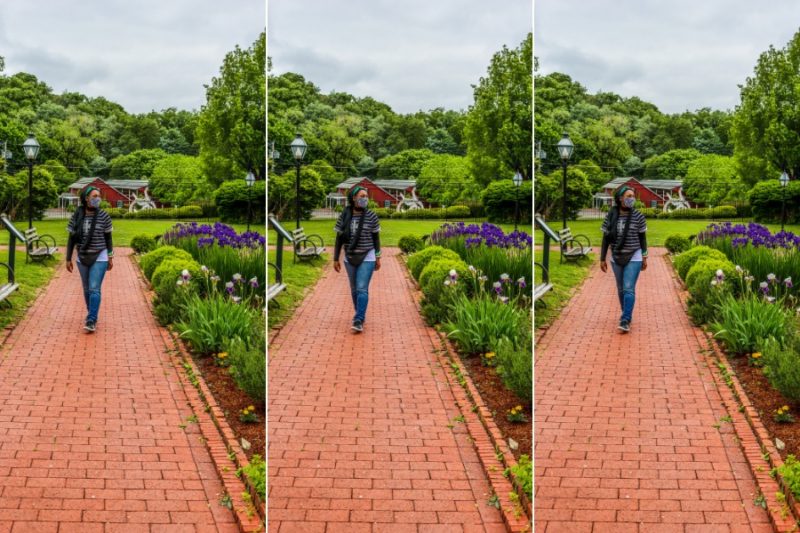If you are new to hiking, then here are 5 hiking essentials every beginner hiker needs to know! Hiking for beginners can seem overwhelming, however, once you get started you will then realize how truly simple and fun it is. Hiking is uncomplicated: it is the activity of going for long walks, especially in the country or woods. You do not need any special equipment or skills to hike, but you just have to be able to walk, know where you are, and be prepared for unplanned happenings.
This post is all about
5 HIKING ESSENTIALS EVERY BEGINNER HIKER NEEDS TO KNOW

Beginning Spring 2021, I have become an avid hiker! I have been exploring Long Island’s breathtaking trails from the Gold Coast and still working my way to the East End. As such, I think it is extremely important to know hiking essentials, especially when you are a novice! Hiking is a great way to engage yourself respectfully in nature, get a good workout in, and recharge your mind, body, and soul. These tidbits will give you some essential hiking tips for beginners which will not overwhelm you but will help to make your hike safe and fun!

As an enthusiast and admirer of nature who appreciates the world in its natural habitat, please have respect for the hike, the environment, the animals, and other hikers. I find it necessary to make this plea because it breaks my heart to see unnecessary destruction of the planet. So please!
- Do not litter (throwing away food wrappers, fruit peels, water bottles, etc.). Either take your litter home with you or find a proper garbage bin.
- Do not disturb the environment or the animals (i.e., tearing down branches, trapping animals, etc.)
- Do not leave the official trail (trails are marked for your safety as well as the safety of animals and preservation of the environment).
- Be mindful of other hikers (we are sharing the trails and world, let us respect each other).
- Do not graffiti any parts of nature (while graffiti is an art, the natural world does not need alteration – please save graffiti for proper permitted places).
Let us all be champions of the outdoors and emphatic stewards of nature.
Read more Leave No Trace Seven Principles.
5 HIKING ESSENTIALS EVERY BEGINNER HIKER NEEDS TO KNOW
1. Pick a Hike for Beginners & Understanding Your Map/Route

Picking a Hike for Beginners –
If you are new to hiking, then you want to ease yourself in. A big mistake many beginners make is picking a hard hike, overdoing it, and then never hike again. Do not pick a hike that is either too long, has too many hills, or too much climbing. Do not do that! You want to pick a hike that is under 5 miles (better yet, 1 to 2 miles) that is mostly flat (this is easy to find on Long Island!). Remember, you are a beginner so you will be building your stamina for miles with each hike you make.
There are plenty of resources to find a trail; I like and currently use AllTrails. However, specifically, to Long Island is a dedicated blog A Mike Who Likes to Hike.
Other resources include, but are not limited to GaiaGPS, Hiking Project, Map My Run, Maps.ME.
Get familiar with the hike before you go by reading the trail guide and reviews, analyzing what to expect, and how long the hike might take you. Do not be alarmed, you do not need to memorize the trail, this is only to familiarize yourself with it and you should now have a good idea of what to expect.
Understanding Your Map/Route –
With all that said, a major key to enjoying your hike is understanding where you are and where you are going. Using a combination of electronic navigation (bring back up batteries and/or backup phone) and a paper map is a safe route for beginner hikers. For example, I will read and make a mental note of where my next turn will be. Note any special makers or landmarks – this keeps me cognizant of my next move.
Special note, when you are using an app, you will want to download the maps for offline use. This ensures that you will still have access to the map even if you lose cell phone connection. If you are planning to be disconnected, then put your phone in flight mode before you hike – this will save your battery charge! When a cell phone goes out of cell tower range, it drains the battery by searching for a signal. Putting it in flight mode (with GPS or location services still on) will save on battery life.
I am still a newbie myself and find that carrying a compass is helpful when used correctly. If you are unfamiliar with how to read a compass, check this thorough breakdown at Clever Hiker.
2. Tell a Trusted Person Your Whereabouts

This seems extremely obvious, but better to say this than not to. Telling someone where and when you will be hiking could very well save your life. Send a text message or email with the hike trail or webpage. Also, note the anticipated time you expect to be done with your hike and arriving home. For instance, if you take a misstep or something bad happens, then this will highly increase your chances of being found alive.
It is also helpful to download an app that can pinpoint or get close to your exact location, I use Life360 regularly. Additionally, I use Garmin Connect LiveTrack as well.
3. Nutrition & Hydration

I recommend eating a decent sized breakfast that is not too heavy nor too light before any hike. It will give you the energy you need for the day and hike, however, if you are not a breakfast person, then do what feels right for you. You want to make sure you have enough calories to sustain your energy for your day’s activities. For instance, carrying protein packed snack bars, dried fruits, nuts, and jerky are fulling and lightweight to pack. If you are looking to picnic during your hike, then it is easiest to carry sandwich items such as tortillas, sliced meats, and cheese.
You should always stay well hydrated on your hike. Water is critical to your body running and working smoothly. Make sure to bring enough water for the duration of your hike and to pace your water intake. Water will probably be the heaviest thing you will carry with you, so you want to bring enough and avoid bringing extra water.
HIKING ESSENTIALS EVERY BEGINNER HIKER NEEDS TO KNOW
4. First Aid Supplies

Not much of an explanation needed here, but a first aid kit (whether buying one or building your own) will come in handy for cuts, bruises, bites, and any other mishaps you experience. Be prepared as you never know when you might need band aids, scissors, rubbing alcohol, or first aid tape for other uses.
5. Take Your Time

Slow and steady finishes the hike safely. Pace yourself and conserve your energy on longer hikes; you never know when you will need to tap into those energy reserves. For example, if you get lost or miscalculate your time on a long trail, then you will need energy and your strength to adjust and get back on track. Do not overexert yourself more than you need to, remember, you want to finish your hike safely and have a good time as well.
6. Bonus – What’s in my Backpack?

As a beginner, I like to keep everything as simple as possible. I use a small but comfortable sized backpack as I do not want to overpack and weigh myself down. So, what exactly is in my backpack? Bug spray, bug wipes, and dryer sheets! These are NECESSARY, bugs can get really aggressive on hikes, and you want to be prepared – I spray myself about every two hours and it has worked well thus far. Otherwise, the buggies can really ruin the experience. Additionally, I have a first aid kit, windbreaker, a hand towel, flashlight and headlight, extra batteries, scissors, plastic bags (if my shoes and socks get wet, then I take them off and put the bag over my bare feet before putting socks and shoes back on), hand sanitizer, water bottle, and snacks/foods. These are seriously the hiking essentials every beginner needs!
7. Extra Tidbits

This seems obvious but check the weather before your hike. If the weather looks bad i.e., rainy, wet, too hot, and/or questionable, then you should postpone your hike for another day.
Always dress appropriately! Dress in layers. It is better to be overdressed than underdressed, also pack a light sweatshirt or windbreaker – this could save you. I also recommend wearing lighter colored clothing, this helps you to spot bugs on you much easier. Oh! Wear a sunhat to top.
Wear high socks! You will thank me later. First, if you are walking off path and through any sort of high grass or bush, then these high socks will help to keep ticks and other pests off your skin. Second, they are a good cushion for your ankles and feet.
Watch your step! This could mean the difference between you slipping on rocks/shrubs, tripping on a root, twisting your ankle, or stepping on wildlife. Be aware of your surroundings.
But wait, there’s more –
Choose your hiking shoes (boots or sneakers) wisely! Focus on getting a pair that has the right balance of comfort, weight, traction, and durability. This will make a huge difference in whether you are enjoying your hike.
A strong and comfortable backpack should meet your needs. They should include pockets, straps, and be made of durable material. You should aim for waterproof or water resistant in the event you do get caught in rainy weather.
I previously mentioned this, but I must reiterate. BUG SPRAY – you will need this. Bugs can really ruin your hiking experience if you are not prepared to keep them off of you!
Safety – if you can hike with a buddy, then I suggest you do so. However, if you are a lone hiker then carry a whistle and legal protection.
Bathrooms – Generally, if you stay on the trails, then you will eventually come to pass porta potties. However, if you must go, then dig a cat hole and then bury your waste or use a plastic bag and take it with you to dispose of properly!
Are you a beginner hiker? What are your essential hiking things? Let me know in the comments!
Happy Hiking! 🖤
This post is all about
5 HIKING ESSENTIALS EVERY BEGINNER HIKER NEEDS TO KNOW.
Toya is a model, actress, and lawyer who enjoys sharing her life experiences. She shares her experiences on travel things, adventures, products/services and reviews everyday lifestyle moments. She inspires her readers to get out and live their lives to the fullest!





